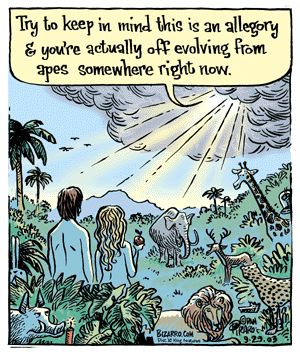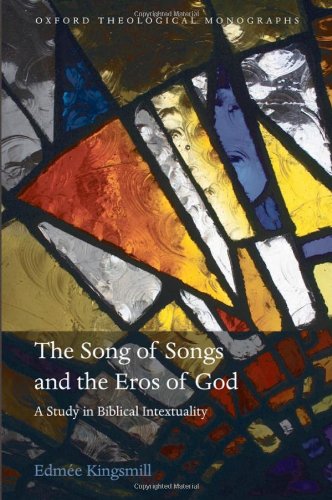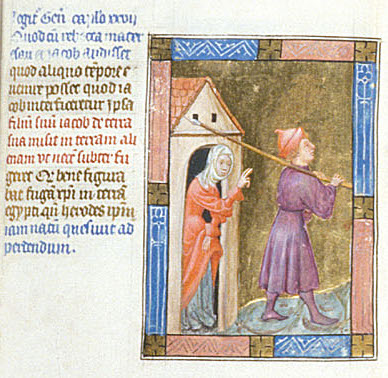Last week an email from a friend spurred me on to write a few thoughts about Gen. 1:1 and whether or not creation therein described as ex nihilo. There was enough encouragement in the comments for me to think about the topic some more and take up my digital pen today.
But first a few comments. One of the reasons I have not written more about this here is because I am keenly aware of so much that has already been written that I have either not read or don’t remember. And what can I add to the conversation? Well, I have always argued that this is a place for my thoughts, no matter how scattered and disorganized (or poorly researched) rather than a place for my research (although I do have some of my work available at the appropriate pages, see Targum Lamentations and Targum Ruth above). So, with that and Natalie Goldberg’s injunction to simply write in mind I will get this train of thought started down the tracks.
Reading Literarily
 I grew up in a home and church with very literal readings of Gen. 1-2. As I entered college and began taking courses with faculty such as Gary Rendsburg
I grew up in a home and church with very literal readings of Gen. 1-2. As I entered college and began taking courses with faculty such as Gary Rendsburg I began to realize just how many ways there were to read the Bible and Genesis specifically. Now of course I knew the challenges to a traditional reading of Genesis from earlier days than college, I remember being in 4th or 5th grade and having a heated discussion about dinosaurs, for example. But what Rendsburg helped me to see was that reading Genesis was not an either/or supposition. And we also don’t have to resort to the silly “it’s myth but it is still true” charade. [mfn]Although once I am done writing I won’t be surprised if some will feel I have succumb to it myself.[/mfn]
I suggest that we read the Bible “literarily.” I don’t know if I have coined the use of this term or if I picked it up from someone else, but I do need to define how I use it. Reading the Bible literarily means understanding what kind of literature each element of the Bible (and it can change chapter to chapter and verse to verse) is employing. Is it poetry? Then we should try and understand what is characteristic of ancient Hebrew poetry and read it accordingly. Is it presenting history? Then we need to consider what historical writings of the period consisted of and read those texts with that in mind.
Thus we are acknowledging that the Bible is literature, literary works that reflect the culture, language, and milieu in which they were created. That does not mean that those of faith cannot still read these texts as containing the word of God, but, as the rabbis have said, the language of Torah is the language of man. [mfn]BTW my doctoral adviser used to quote that all the time, but I have never found the citation. Anyone else know where it comes from?[/mfn] In order to understand the content, let alone the intent, we must understand the language, and that is not simply vocabulary and grammar.
I think this will suffice for an introduction to how I read the Bible and where my comments on Gen. 1-3 are coming from. Tomorrow I will delve into Genesis 1 with a discussion of what it is not saying.





8 thoughts on “Where to begin in The Beginning?”
Professor Rendsburg’s intro course was a significant milestone for me, too. His presentation of the 10 plagues caused me to realize how much could be missed by “just” reading today — without understanding how the original audience would have understood the same sentences.
You know me well enough to know I’m not trying to be snarky, but I have to take at least a little issue with the “myth but still true charade” quip. The real problem is not the “myth but true” combination but the defining of “truth” as literal fact. Perhaps even more problematic is the suggestion that anything not literal fact, since not “true,” must be “lie.” Narnia is “true” in profound and significant ways, though fiction.
Ugh. This is sounding too much like “What does ‘is’ mean?”
Keith – I do know you well and I am glad that you too are taking up the term snarky (while not being snarky yourself). My issue with using the term “myth” is that fundamentally, as well as in popular perception, it has the meaning of “a commonly held yet false belief.” So to say, as we often do in religious studies circles as a kind of special pleading so as not to offend, “it is a myth, but it contains deep and eternal truths” may make sense in our little circle, but to the average person it just sounds nonsensical.
Why don’t we say instead that it is a poetic presentation of the truth? “Myth” is used because supernatural beings are involved and, the implicit assumption is, they do not actually exist. But for Jews and Christians God and such beings do exist, so why simply jettison the term and instead focus on other traits and characteristics of the literature?
Hello Chris,
Daniel O. McClellan has a link to an online pdf download of Rendsburg’s book.
Here is the actual page:
http://jewishstudies.rutgers.edu/index.php?option=com_content&task=view&id=236&Itemid=5
Here is the blog:
http://maklelan.blogspot.com/2009/01/gary-rendsburgs-redaction-of-genesis.html
All the best,
David
Outstanding David! Thank you! I will elevate this to a post. Good news indeed.
As a side note, I have not had the privilege of studying under Rendsburg in person, but I did use his Genesis audio course from the Teaching Company. For anyone else who might be interested the course is absolutely fantastic. I would say it is especially well worth it to get the DVDs if you wanted to do an adult education course in a church or synagogue setting but don’t have the time to prep or have a teacher who has time to prep. It’s here if anyone wants to check it out:
http://www.teach12.com/ttcx/CourseDescLong2.aspx?cid=6234
And, David thanks for the book link.
Jeremy – Rendsburg was a great professor (still is, I am sure) and I was amused upon listening to his audio version of his Genesis class just how much I had retained. I regularly use many of the same observations and comments in my own teaching of Genesis.
Speaking of Rendsburg – he also frequently quoted to me (the language of Torah is the language of human beings) which supposedly comes from the rabbis. Which still leaves us asking “yes but where exactly?”